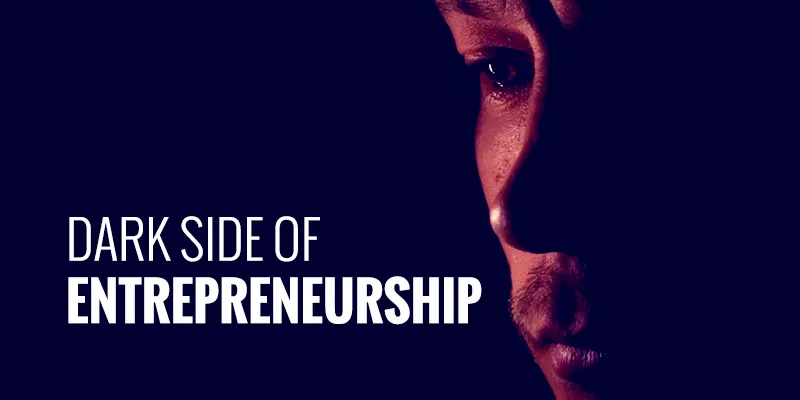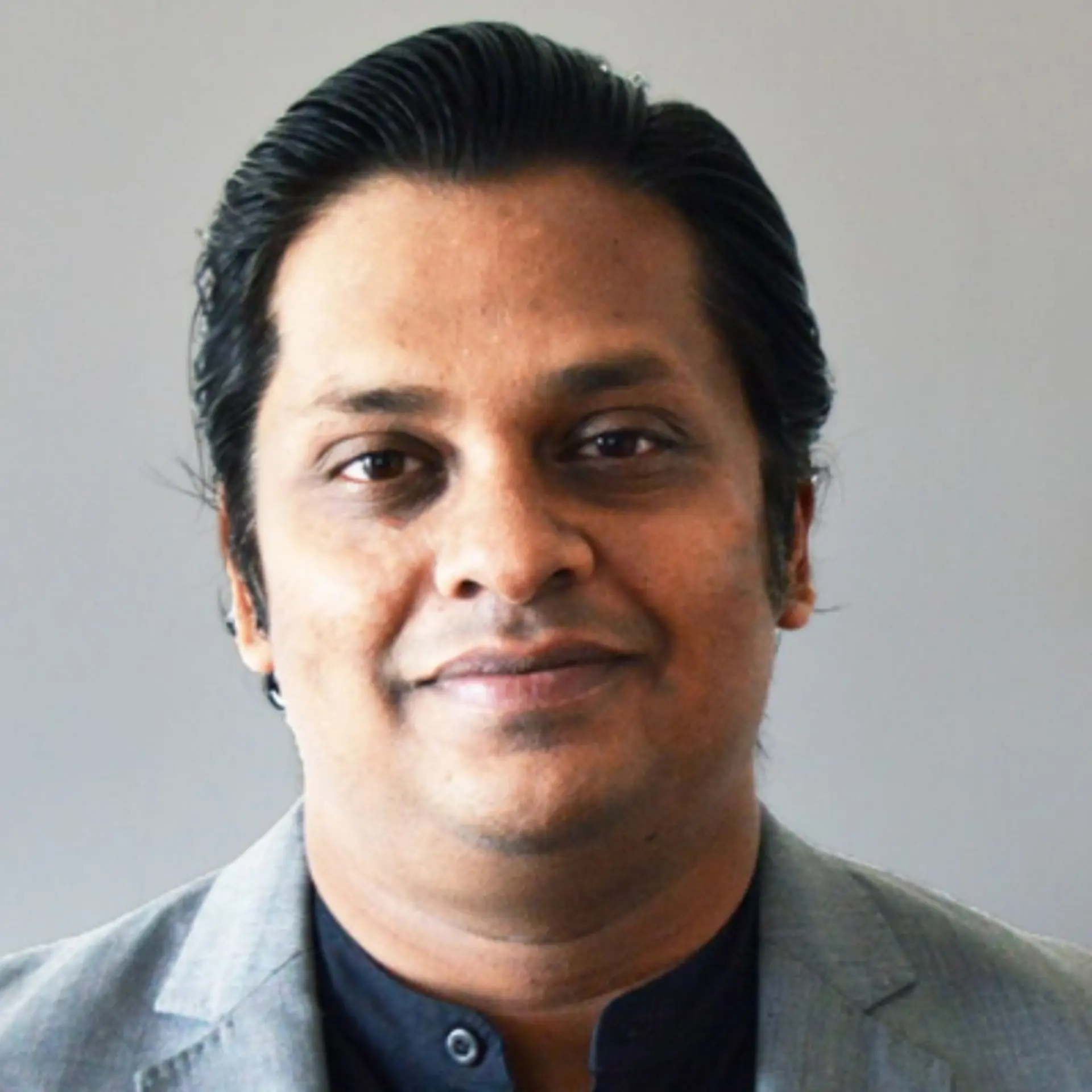Startup founders, let’s talk about failure and depression
Depression is no longer a well-guarded secret in the Indian startup world. The fear of failure is pushing entrepreneurs to the brink. Is it time to embrace failure?
‘Failure is not an option’.
This particular quote is often thrown around to ‘motivate’ people. To push them to push themselves. The idea that anything can be achieved if only you put your mind to it is at once fantastic, as it is cruel.
A quote made up by the Hollywood folks for the Apollo 13 movie, ‘Failure is not an option’ went on to become a part of the NASA folklore. It successfully encompassed the story and the attitude of the mission control crew.
So yes, as the world’s largest space programme it could afford to live by this creed. But what happens when you pluck this quote out of context and slap it on the palm of an individual -- an entrepreneur in our case?
They are meant to fail fast, aren’t they? Or to break things fast, to hire fast, to fire fast? Or are they?
Let down by my own expectations
Silicon Valley ‘codes’ such as these are becoming a trap for many startup guys here. When taken out of context, maxims such as these can suck the entrepreneur into the quicksand of anxiety and depression.
Tech entrepreneurship in India, modelled on that of the Silicon Valley, is unfortunately yet to mature. The venture capital that flowed into the system brought with it a new culture where the stakes are so high that you either perform or perish.

When Valley idols like Marc Andressen says, “In the startup world, you're either a genius or an idiot. You're never just an ordinary guy trying to get through the day,” it should become apparent that starting up is not for the faint-hearted.
Yet, like moths to a flame, many persist. And fall down. Failure is a given.
“When I started my own venture, I was very clear that I wanted to build a solid business. I was prepared to deal with failures,” says Rashmi R Padhy, Founder of Yappily, which shut down in 2017. He is now co-leading the product practice at ThoughtWorks India.
Rashmi says, “We take what Silicon Valley shows us in the wrong way. When they say fail fast, it does not mean you take the company down. I think what is meant is you carry out experiments fast to see what works.”
As someone who has seen failure at such close quarters, Rashmi says it is easy to let your frustration, anger, and stress lead you to the doorstep of depression. “Whenever I felt low on this journey, I would either go for a run or sleep it off,” says Rashmi, who moved to India from the US to start up. In the process, he gave up his high-paying job aware that he and his family would have to scale down their lifestyle considerably.
He credits his mental wellbeing in this tough phase to the support of family and friends. “You also need to have a set of like-minded people who understand what you are going through. It is always good to be connected to other entrepreneurs to whom you can rant,” says Rashmi, sharing what worked for him.
In a recent tweet storm, Paras Chopra of Wingify, said that there were a surprising number of entrepreneurs he has met recently who have confided that they feel lonely and frustrated.
He went on to say how the entrepreneurs have to show success to the media, customers, and employees, while on the inside they know where they fail. “I’ve seen that most successful entrepreneurs internalize failures as their own but externalise success as with luck,” he states.
The entrepreneurship journey is paved with many myths. Armed with their cloaks of ‘innovation’, the tech superheroes are on the quest to make those myths real; to change the world with their product. Hence, anything that does not lead up to this is seen as mediocre. And that is frustrating.
Putting the blame on the media (partly so), Paras adds that, “A median startup isn’t killing it. Slack, Uber, Airbnb isn’t median. The visible gap between where your company is and where it could be is the biggest source of frustration.”
The bipolar moment
Who can forget the heady days of 2014 and early 2015 when the Indian startup ecosystem was flush with funds. “Chalo kuch banate hai,” was the anthem of engineers and coders. They knew the investors were waiting for them with open arms.
Everyone worth their code was getting funded. Rashmi says when investors bet on you they expect you to go all out. “There was immense pressure from investors to get the product-market fit. They wanted us to spend all the money on customer acquisition. But I knew that these customers were not sticky. What will I give them by way of my product if that was not yet fixed,” he asks.
For Navneet Singh, “The momentum at the top was intoxicating.” Peppertap, the startup he co-founded, had gone on to raise a Series B of $ 40 million. They were the poster boys of success.
And then in 2016, they had to shut down. Navneet says, “The harshness of a pessimistic funding environment globally started creeping in; and as the increasingly inclement investment climate began to become obvious, we found ourselves at the toughest node in the decision tree yet.
“We couldn’t shake off the feeling that we were walking (not racing like some other companies) towards the edge of a cliff hoping that things will get better before we reach the abyss.”
Over a telephone conversation from Delhi, Navneet tells me that what helped him stay sane in the rapid phase of the downward spiral was that he had his co-founders who sought solace and support from each other. “I was also lucky because we have a logistics business that was doing well. So we did not have the added pressure of financial insecurity,” he says.
It is often the money or rather lack of it that finally breaks an individual. “We have totally bypassed the bootstrapping model of building businesses in India,” says Rashmi, stating that we leapfrogged to the VC stage.
In 2017, for those founders who put their savings to start up and hoped they would raise VC money the battle has been tough. Those that are bootstrapping are able to withstand the dry dust storm that a drought in funding has brought with it.
“Both investors and founders are more cautious now. With no easy money flowing into the ecosystem, there is a sense of frustration,” agrees Navneet.

Giving the example of a young entrepreneur who is struggling with depression, Suyash Kumar of YourDOST, a startup working in the space of mental health, tells me that his condition was further aggravated by the following challenges faced at work:
- Lack of coordination, teamwork, and lack of understanding among colleagues and employee
- Difficulty in aligning employees' interests with the company objective. He felt that the employees were there only to spend money
- Lack of family support and social support
- An almost constant feeling of irritation & frustration
- A tendency to avoid social interaction
- All this makes it tough to get results in a timebound manner. Achieving ROI takes time.
- Difficulty in expressing their feelings and thoughts
It is this curse of the entrepreneur -- of always hustling, of sleeping less and eating all the wrong things -- that adds to the prevailing sense of doom when things do not work out.
In an email interaction with me, Rand Fishkin, SEO Guru and Founder of Moz, writes, "The biggest thing I'd say is that your mental and emotional health matter more than your company, and in fact, they are correlated with your company's success. Think of depression like an infrastructure problem -- until and unless you fully address it, your entire company's performance will suffer. Heal yourself first. Then you can move on to the relatively easier work of making your company grow."
Rand stepped down as CEO in 2014 after a bout with depression.
Pardeep Goyal who managed to build himself a parachute even while he was jumping off the cliff, by says the following things helped him bounce back -- “Support from family, financial backup to support basic expenses, mentorship and friendship of fellow entrepreneurs, efforts to learn & experiment, and give back to the community before expecting anything.”
He has shared his annual income report to inspire those who are frustrated and unable to get the results they want.
According to a 2017 report by World Health Organisation, depression is now the leading cause of ill health and disability worldwide with more than 300 million people suffering.
“Rates of depression have risen by more than 18 percent since 2005,” it said.
According to YourDOST, a startup that provides a platform for people to be connected with mental health workers and counsellors says, in India, one in five people need counselling either psychological or psychiatric.
In 2015, when I wrote about depression being a well-guarded secret in the startup world, I was flooded with many emails from people who had started out saying it is time this was acknowledged as a serious issue. We are at the end of 2017, and talking about mental health and well being is still considered taboo.
It is only when entrepreneurs like Paras talk about this in the open that we can hope to address depression in the startup world. Till then, as he said,
“If you meet an entrepreneur, give them a hug. It’s a lonely job but they are the ones who take the world forward.”
(The article was updated to include Rand Fishkin's input, which was received after the article went live.)







